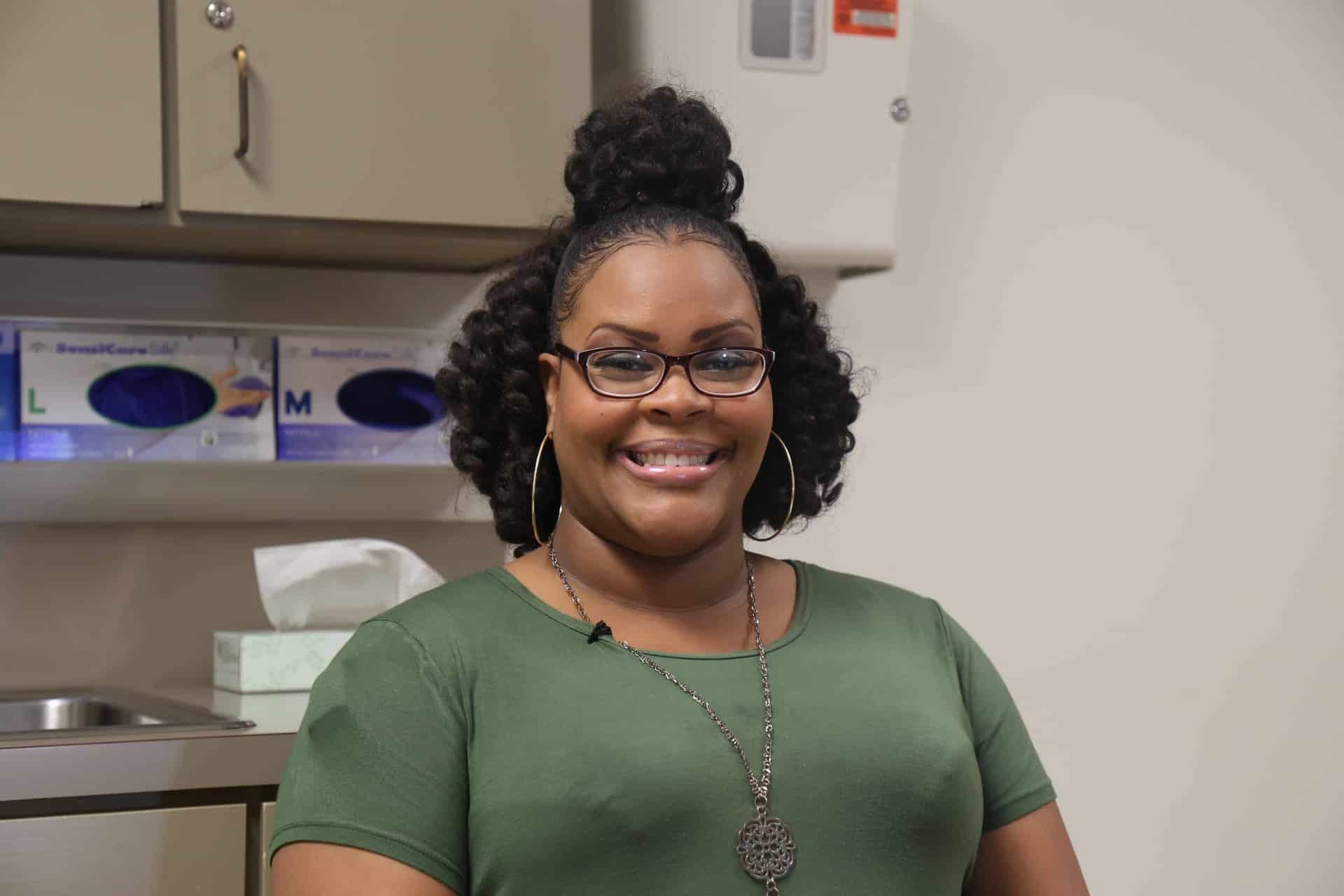UAMS, Blue Cross Join to Fight Eye Disease using Telemedicine
| Sept. 25, 2017 | Vision loss and blindness from diabetic retinopathy can occur gradually with no warning symptoms when high blood sugar levels cause damage to blood vessels in the retina.
That’s why Ryan Jones makes sure she undergoes a yearly eye exam. But it’s not always easy for Jones, who lives in southeast Arkansas, to get to ophthalmologists who specialize in the disease.
A recent pilot program by UAMS and Arkansas Blue Cross Blue Shield is putting access to specialists within an easy drive of Jones and many other Arkansans who live in rural areas without access to eye screenings that would detect diabetic retinopathy. In Arkansas, more than 350,000 people have diabetes.
Diabetic retinopathy occurs when abnormal blood vessels grow on the back of the eye. These vessels can leak or bleed, causing vision loss if left untreated. With a disease that can progress without symptoms, it’s vital for those with diabetes to be screened annually.
Jones, 30, recently took advantage of the program, receiving an eye screening at the UAMS Regional Campus at Pine Bluff and a consultation, via video, from Sami Uwaydat, M.D., a UAMS ophthalmologist in Little Rock.
Jones was diagnosed with diabetes about three years ago. She had gestational diabetes during her three pregnancies, but each time the condition went away after the pregnancy. Then, in 2014, she was diagnosed with type 2 diabetes.
“Diabetes affects so many things, including your vision,” said Jones. “Keeping a good check on it is important when blindness is a possibility.”
The program allows for diabetic retinopathy screenings to be completed at UAMS Regional Campuses clinics during routine appointments. The images are sent to ophthalmologists at the UAMS Harvey & Bernice Jones Eye Institute for review and patients who show signs of the condition are referred to local ophthalmologists for treatment.
Jones’ screening showed no signs of diabetic retinopathy, but she was encouraged to seek an annual exam.
“Every diabetic patient has to have an eye examination every year,” said Uwaydat. “Luckily, Ryan has fine vision and her retina looks normal; however, she will have to continue to be monitored annually.”
The pilot program began in June, and Mark T. Jansen, M.D., medical director for UAMS Regional Campuses, said he hopes it will increase the ability to reach rural residents in Arkansas and prevent more cases of blindness.
“UAMS Regional Campuses strives to help care delivery for rural areas in making sure those patients’ needs are met,” said Jansen. “By partnering with entities like Arkansas Blue Cross Blue Shield on programs like this, we can come up with a way to provide that care to all parts of the state.”
Diabetic retinopathy screenings and telemedicine appointments are available at UAMS Regional Campuses clinics at Pine Bluff, Magnolia, Texarkana, Fort Smith and Fayetteville.


